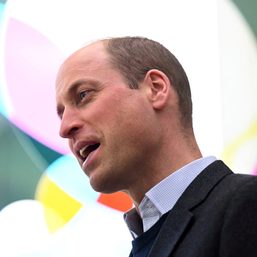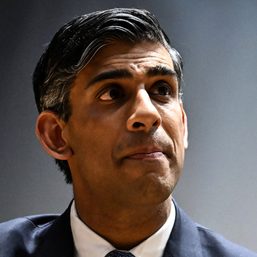SUMMARY
This is AI generated summarization, which may have errors. For context, always refer to the full article.

LONDON, United Kingdom – The British government on Wednesday, September 21, said it would cap wholesale electricity and gas costs for businesses at less than half the market rate from next month, helping relieve the pressure of soaring energy costs but adding to the government’s fast-rising spending.
Wholesale prices for electricity will be capped at about 211 pounds ($239) per megawatt-hour and for gas at 75 pounds per MWh, compared to forecast market rates of 600 pounds and 180 pounds respectively.
“We have stepped in to stop businesses collapsing, protect jobs, and limit inflation,” said Finance Minister Kwasi Kwarteng, who is due to give a fiscal update on Friday, September 23.
Wholesale gas and electricity prices in Europe surged after Russia invaded Ukraine and have remained volatile since. The final unit prices for the scheme will be confirmed on September 30.
Groups representing businesses from pubs to steelmakers welcomed the intervention, saying the government had thrown a lifeline to companies battling to survive.
The government did not publish any estimate of the cost, but Citi forecast 25 billion to 30 billion pounds over the next six months and other reports have put the price at up to 42 billion pounds. That comes on top of more than 100 billion pounds for a previously announced scheme to help households.
“The difficulty with giving cost figure is that this will depend on where the price of energy goes over the winter, and that’s very difficult to forecast so I can’t give you an absolute cost,” Business Minister Jacob Rees-Mogg said.
“It will be in the tens of billions of pounds unquestionably,” he said.
A spokeswoman for Prime Minister Liz Truss said Kwarteng’s fiscal event would outline estimates of the cost of the support packages for business and households.
Critical test
After weeks of political stasis as governing Conservatives chose a new leader and the country mourned the death of Queen Elizabeth, this week the government is making several announcements aimed at averting an impending economic crisis.
On Friday, Kwarteng is expected to set out some detail on how he will pay for the energy scheme while at the same time delivering on promises to cut taxes, although the total cost of the energy scheme will depend on market prices over the coming months.
Investors say Friday’s statement will be a critical test of confidence in British public finances. Borrowing costs are rising at the same time as the government is committing to higher spending, and ministers are banking on accelerated economic growth to stop the bill growing out of control.
Kwarteng on Wednesday said he had pledged to get debt down in the medium term, but it was “absolutely right” to help families and businesses in the face of a major economic shock.
The business energy scheme will initially apply from October 1 to March 31, 2023, for all non-domestic energy users, including charities and the public sector such as schools and hospitals, as well as businesses.
The scheme initially gives urgent support to all such institutions that may need it, but is expected to be narrowed down in March with support targeted to the ones that most need it.
“We’re going to review it after six months. We’ll make sure that the most vulnerable businesses like pubs, like shops, continue to be supported after that,” Truss told broadcasters.
The government also announced support for households in Northern Ireland on the same level as the equivalent scheme in the rest of the United Kingdom, taking effect from November but backdated to the start of October.
The scheme was heavily criticized by most political parties in the region who said the 100-pound additional payment to households unable to receive support through the price cap because they use alternative fuels such as heating oil was insufficient.
More than two-thirds of Northern Ireland households use oil boilers as their main source of heating, the largest percentage in Western Europe, according to Northern Ireland’s Consumer Council. – Rappler.com
$1 = 0.8822 pounds
Add a comment
How does this make you feel?





There are no comments yet. Add your comment to start the conversation.